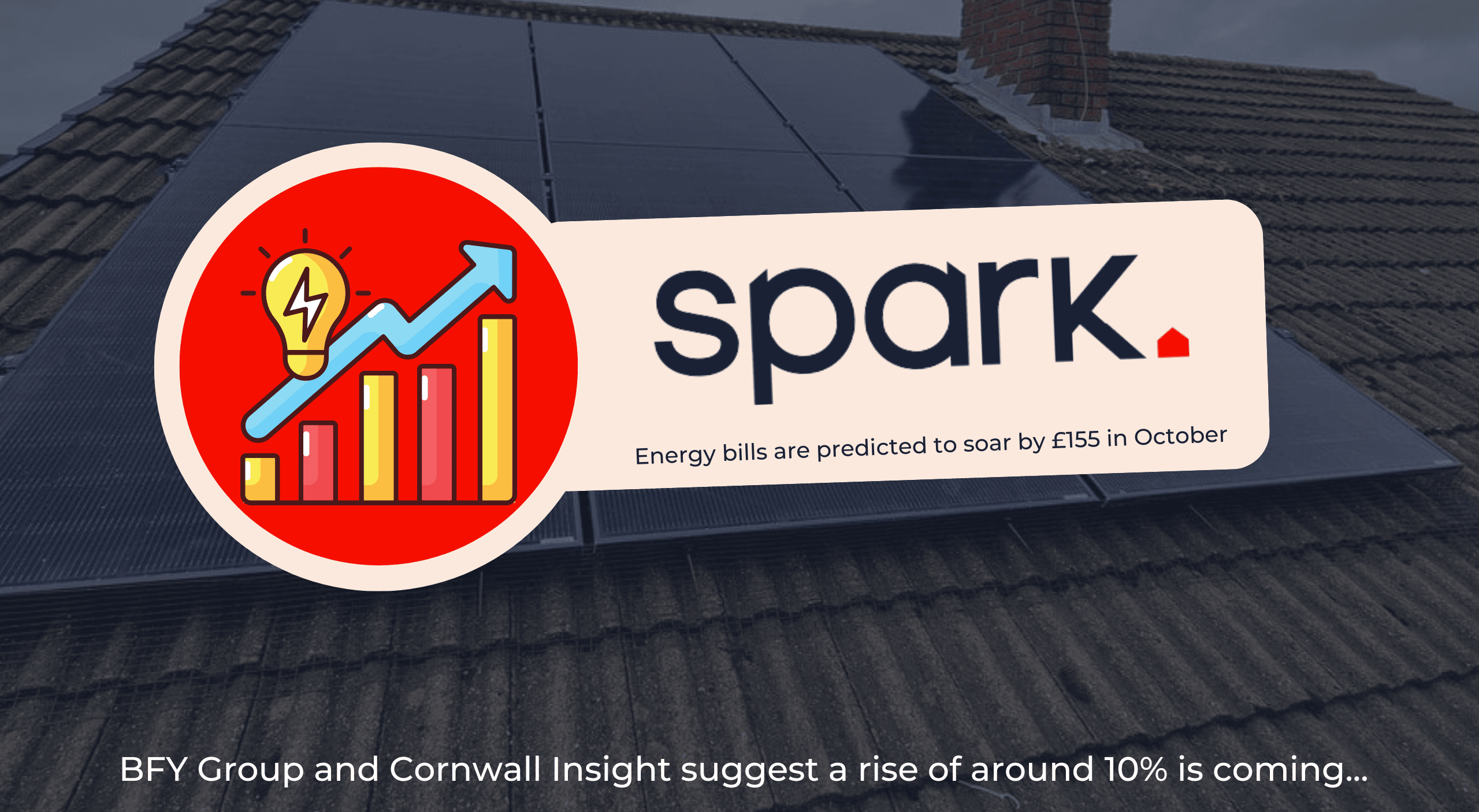
It is forecasted that energy bills are set to soar for the nation by around £155 in October to add more misery to billpayers in the UK.
Experts from BFY Group and Cornwall Insight have predicted a significant rise in the price cap from the current £1,568 to £1,723 from October for typical households in the UK. This equates to around a £155 increase in the typical household, which, given the cost of living crisis we’re still in, adds more pressure to struggling households.
At Spark, we aren’t shocked by this news as the recent cut while being a people pleaser, was always (in our opinion) aimed to soften a further increase in prices further down the line. With the recent news about winter fuel payments being scrapped for around 10 million pensioners, it seems that energy bills are once again at the forefront of news in the UK and not for good reasons. This time affecting everyone in the UK.
Recent cuts short-lived
With energy bills having recently been cut by 5% in July, the more recent rise prediction of 10% doesn’t bode well for energy companies. With a net rise of 5% over the last 6 months — all eyes will be on January to see if help will come or if energy prices will once again go up as the market has shown its volatility again in recent years.
What is the energy price cap and how does it help?
The energy price cap covers 28 million households in England, Wales, and Scotland and is reviewed every 3 months by Ofgem, the energy regulator. It sets the maximum price that can be charged for energy with the next change/review due in October. However, some energy suppliers in British Gas, Co-Op, and Octopus Energy have all taken early steps and raised the price of their fixed tariffs, while EDF has completely removed their cheapest available tariff in response to the recent cut and in preparation for the now-predicted rise in October.
What does this mean for you?
The energy bill reduction implemented in July will be short-term, and minimal impact will have been gained from the price cut in July if the next review, as widely predicted, goes up again.
Ofgem has also suggested that they may start charging different prices throughout the day to reflect periods of high demand. This could reduce the price energy in the home as businesses that use more energy during the day would be expected to pay more. Those actively using energy in the evening (the typical household) would pay less.
One way to control your energy bills is to take energy consumption steps by being energy smart within the household, or go one further and generate your own energy through a solar panel system. To find out more about how you can do this, just visit www.sparkhome.co.uk.
